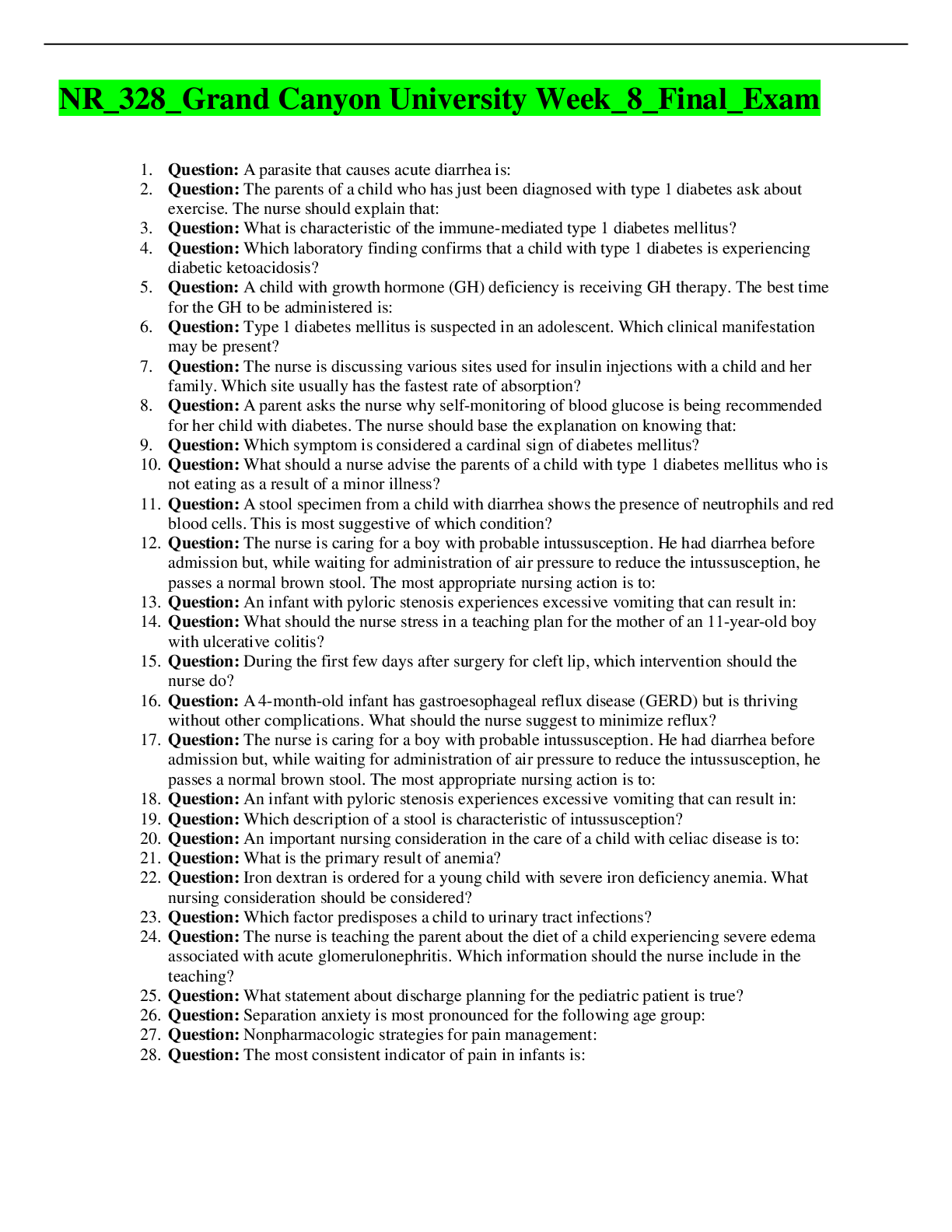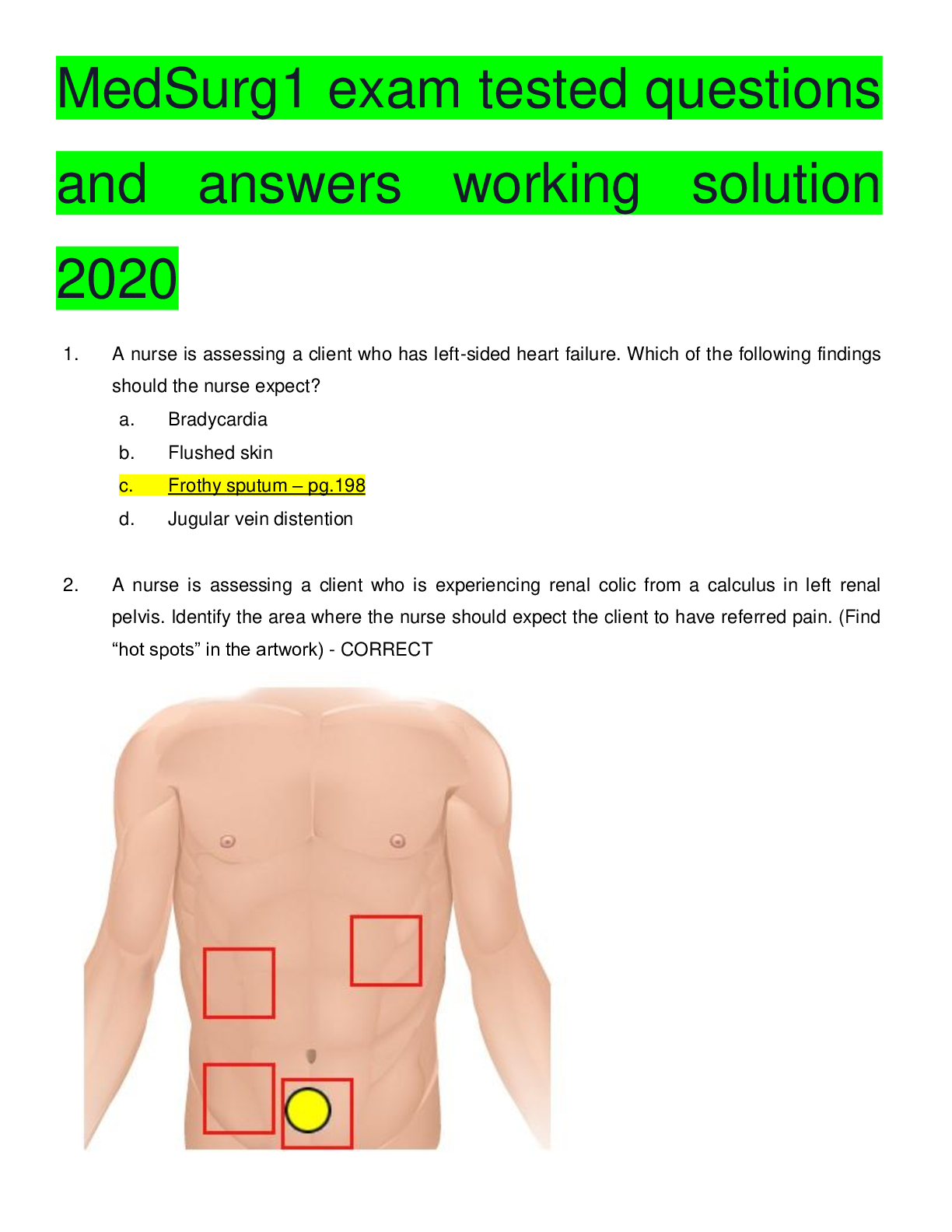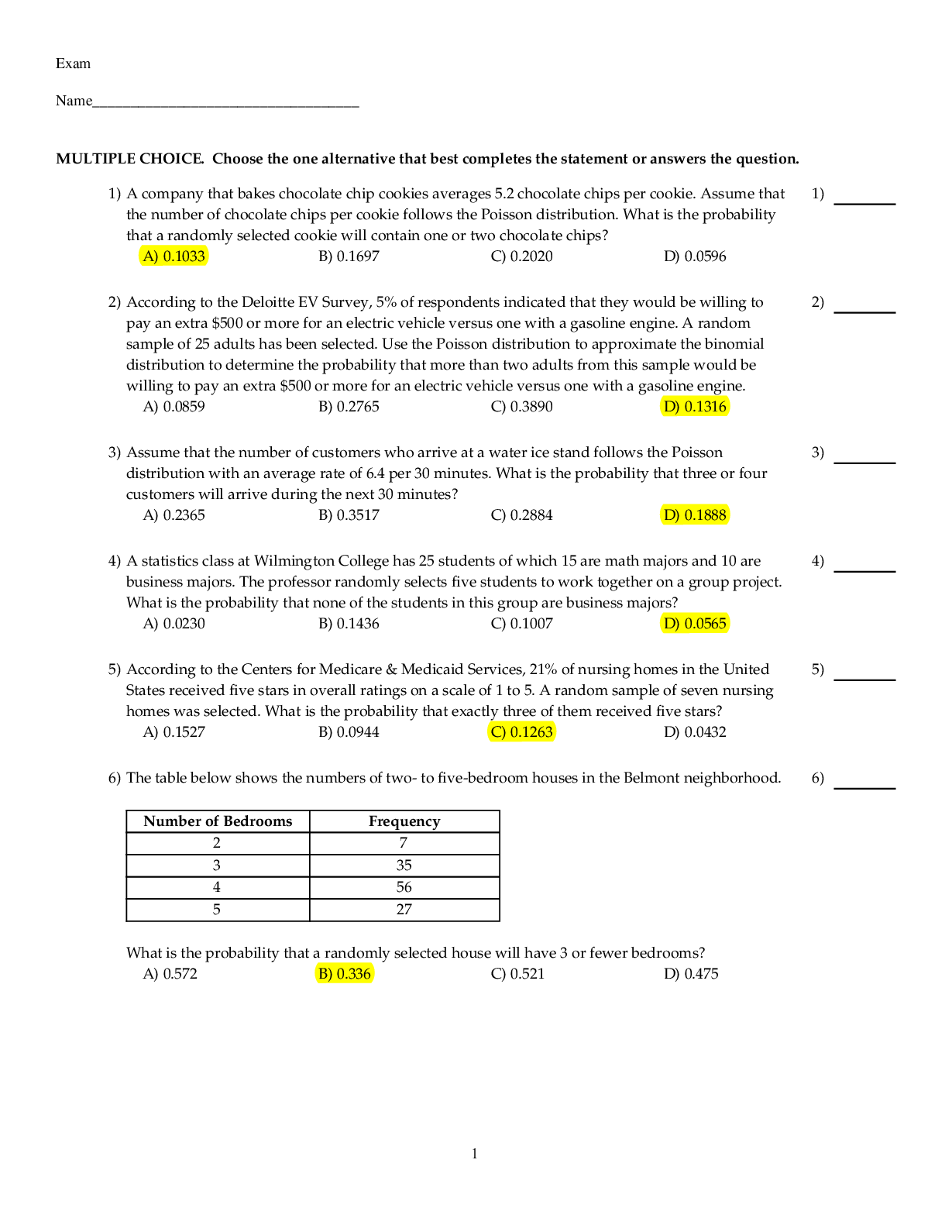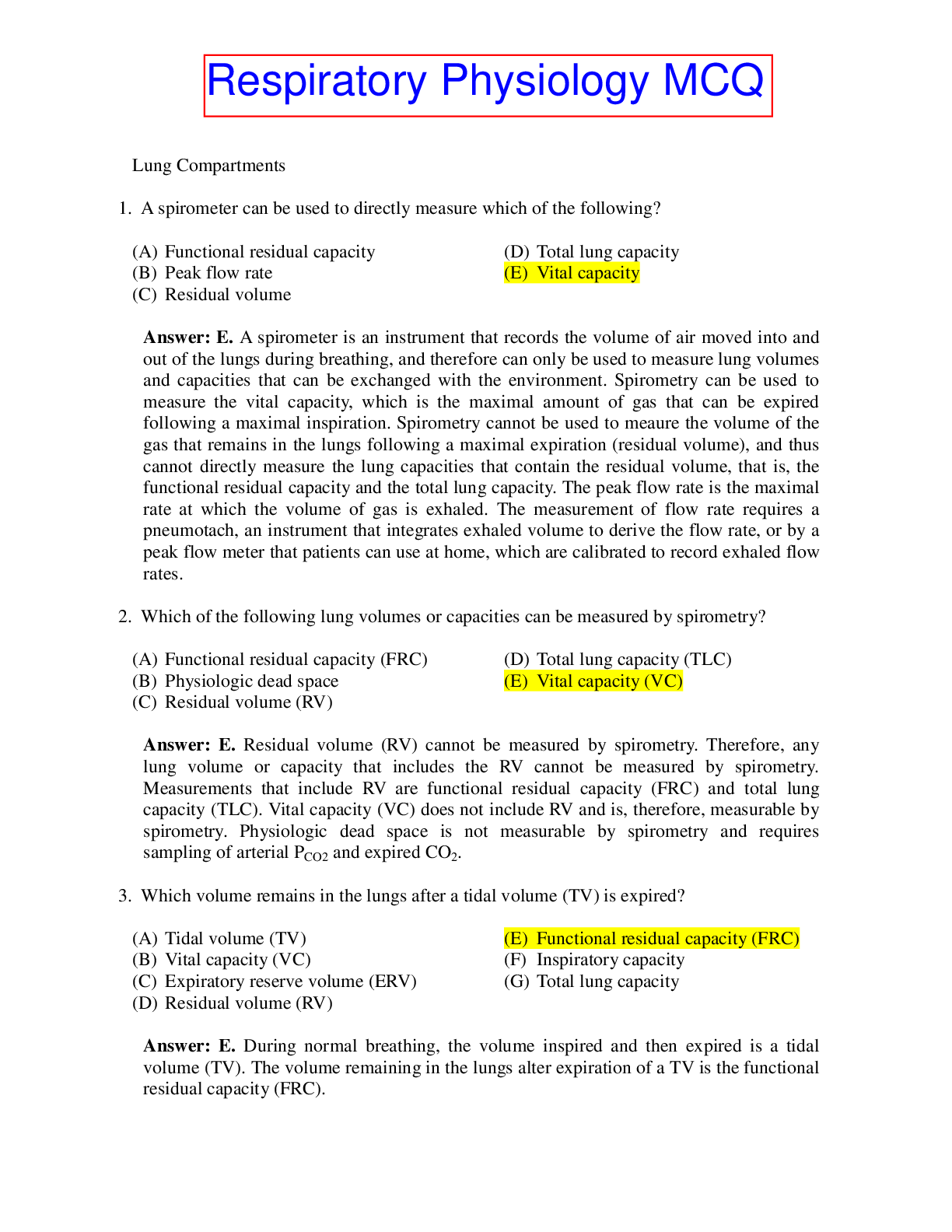Health Care > QUESTIONS & ANSWERS > PATHOPHYSIOLOGY_ PATHO 2410 Cognition Perception & Mobility (CP5) Test Bank Exam Tested Questions an (All)
PATHOPHYSIOLOGY_ PATHO 2410 Cognition Perception & Mobility (CP5) Test Bank Exam Tested Questions and Answers (Revised 2021 Exam Study Guide)
Document Content and Description Below
PATHOPHYSIOLOGY PATHO 2410 Cognition/Perception & Mobility (CP #5) Test Bank Exam Tested Questions and Answers Chapter 15 1. What do the extrinsic muscles of the eye control? a. Movement of the ey... eball b. Movement of the eyelid c. Size od the pupil d. Shape of the lens 2. What must happen for the pupil of the eye to dilate? a. The circular muscle of the iris must contract. b. Cranial nerve III must be activated. c. Stimulation of the sympathetic nervous system is required. d. The optic nerve must be stimulated. 3. Which of the following is caused by an irregular curvature of the cornea or lens? a. Nystagmus b. Astigmatism c. Hyperopia d. Strabismus 4. Trachoma is an eye infection caused by: a. Influenza virus. b. Candida albicans. c. Staphylococcus bacteria. d. Chlamydia bacteria. 5. Which statement does NOT apply to chronic glaucoma? a. Degeneration and obstruction of the trabecular network b. Gradual increase in intraocular pressure c. Abnormally narrow angle between the cornea and iris d. Damage to the retina and optic nerve 6. Which disorder is manifested by loss of peripheral vision? a. Retinal detachment b. Chronic (wide-angle) glaucoma c. Cataract d. Macular degeneration 7. Which of the following involves a gradual clouding of the lens of the eye? a. Glaucoma b. Cataract c. Macular degeneration d. Keratitis 8. Which of the following is a likely consequence of an untreated detached retina? a. Lack of nutrients causing death of retinal cells b. Edema of the cornea causing blurred vision c. Cupping of the optic disc with damage to the optic nerve d. Damage to the fovea centralis 9. Which of the following is a sign of a detached retina? a. Painless blurring of vision b. Eye pain, halos around lights, and nausea c. Progressive loss of central vision d. No pain, development of a dark area in the visual field 10. What is the basic pathological change with macular degeneration? a. Increased amount of aqueous humor in the eye b. Movement of vitreous humor between the retina and the choroid c. Degeneration of the retinal cells in the fovea centralis d. Damage to the optic nerve and meninges [Show More]
Last updated: 2 years ago
Preview 1 out of 20 pages
 Test Bank Exam Tested Questions and Answers (Revised 2021 Exam Study Guide).png)
Buy this document to get the full access instantly
Instant Download Access after purchase
Buy NowInstant download
We Accept:

Reviews( 0 )
$14.00
Can't find what you want? Try our AI powered Search
Document information
Connected school, study & course
About the document
Uploaded On
Jun 05, 2021
Number of pages
20
Written in
Additional information
This document has been written for:
Uploaded
Jun 05, 2021
Downloads
0
Views
71
 Test Bank Exam Tested Questions and Answers (Revised 2021 Exam Study Guide).png)


 Questions and Answers (latest Update), All Correct, Download to Score A.png)






, (A Grade), Questions and Answers, All Correct Study Guide, Download to Score A.png)
, Questions and Answers, All Correct Study Guide, Download to Score A.png)
, Latest Questions and Answers with Explanations, All Correct Study Guide, Download to Score A.png)




 answers.png)





 Test Bank Exam Tested Questions and Answers (Revised 2021 Exam Study Guide).png)

